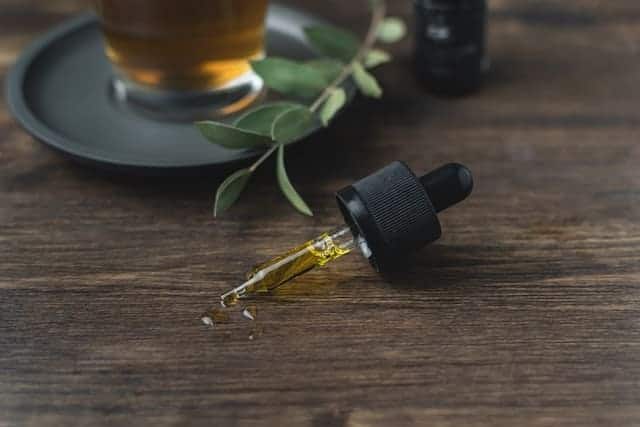Even if you have never tried cannabis, chances are you have heard of THC. One of many cannabinoids found in both cannabis and hemp plants, THC is the cannabinoid most commonly associated with marijuana. THC has psychoactive components and is most famous for its potential to create a “high” feeling.
Still, there is a lot to know about THC further than the potentially intoxicating effects it can have. In cannabis and hemp plants, there are many different forms of THC and they can each have their own unique effects. Let’s take a closer look at the different variations of THC and what research says about each:
What Is THC?
THC, also called tetrahydrocannabinol, is one of many chemical compounds found in hemp and cannabis plants. These compounds are referred to as cannabinoids. Each different THC cannabinoid has its own distinctive properties and chemical structure.
In basic terms, the chemical structure of THC is similar to a chemical natural to the brain called anandamide, one of many endocannabinoids naturally found in the body. The similarities in structure between the two allow the body and brain to register THC and respond to it. The response takes place within the endocannabinoid system, or ECS, which is a bodily system responsible for functions like inflammatory response, pain management, sleep cycles and more.
It is this kind of interaction that creates the potentially psychoactive components to THC, as well as the potentially therapeutic aspects many seek out like appetite stimulation, relaxation and pain management. So, now that know how THC can influence the body in basic terms, let’s take a closer look at the different variations and their effects.
Delta-9 THC
Delta 9 THC is the form of THC most people know of and associate with marijuana. Delta 9 occurs in both hemp and cannabis plants naturally, with higher concentrations in cannabis plants referred to as marijuana plants. Typically, when one mentions “THC,” they are referencing delta 9 THC. Delta 9 THC is best known for the “high” it can create, but there are other properties the compound can provide. Some research suggests delta 9 THC could be beneficial for promoting appetite, relieving pain from some chronic conditions and relieving stress or anxiety. On the other hand, some users have reported increased paranoia and anxiety when using delta 9.
When derived from marijuana, delta 9 THC can be found in a variety of forms like flower, vapes, oils, edibles, concentrates, and more. Delta 9 THC is still considered a Schedule I substance federally, so it cannot easily be purchased everywhere. There are more and more states legalizing delta 9 THC on a medicinal and recreational level, but delta 9 THC is still more regulated than other cannabinoids produced from hemp plants with lower delta 9 THC content.
Delta-8 THC
Delta 8 THC is one of the recent forms of THC to really take the cannabinoid industry by storm. Delta 8 is an isomer of delta 9 THC, meaning they have similar structures with a key distinguishing difference. Due to a difference in location of a double bond on their carbon chains, delta 8 and delta 9 are said to have different effects on users.
More research is needed to clarify the exact effects of delta 8, but many users have reported intoxicating effects similar to delta 9 but less intense. Reportedly, delta 8 THC is a milder version of delta 9 THC.
Another main difference between delta 8 and delta 9, apart from the effects, is the legal status on a federal level. Delta 8 THC is considered legal because of the 2018 Farm Bill and the legalization of hemp along with its cannabinoids. The majority of delta 8 products on the market today are made with CBD processed in a lab to create delta 8 THC. Among cannabinoid enthusiasts, delta 8 THC could create a desirable middle ground between CBD and delta 9 THC.
Delta-10 THC
Delta 10 THC is another fairly new form of THC to gain popularity following the 2018 Farm Bill. Like delta 8 THC, delta 10 is thought to be a milder form of THC than the popular delta 9. Delta 10 THC predictably has its double bond on the 10th carbon chain, which is believed to be the cause for the difference in effects.
Some users of delta 10 THC have claimed it offers a more “sativa” based experience, but this can differ for everyone. Like delta 8 THC, most of the delta 10 THC available for purchase is derived from CBD.
THCa
THCa is the acidic form of THC, and the most natural form of THC found in cannabis plants. When heated, THCa goes through a decarboxylation process that transforms it from its acidic state to different THC compounds.
THCa by itself, and without any heating, is a non-intoxicating compound with no mind-altering effects. In 2021, hemp derived THCa was made federally legal, while marijuana derived THCa is still not.
THCv
THCv is thought to be similar to delta 9 THC, but it is formed differently. Both THC and CBD are formed from CBG, also known as the ‘mother of cannabinoids’ and the first cannabinoid produced by cannabis plants. All other cannabinoids are derivatives of CBGA, the acidic form of CBG.
It is thought THCv activates the opposite receptor than delta 9 THC in the ECS when taken in small amounts. When consumed in larger quantities, it could activate both receptors and have a change in effects. Also in 2021, THCv derived from hemp plants is federally legal.
THC-O
THC-O is likely to most “different” THC compound, mostly because it does not occur naturally in hemp or cannabis plants. THC-O is most often made from delta 8 THC alerted with acetic anhydride. Some users have said the effects of THC-O are stronger than other variations of THC. Due to the 2018 Farm Bill, THC-O is technically legal on a federal level, but some states have specific bans.
THC-P
THC-P is one of the lesser-known forms of THC. It is reported to have stronger effects and a higher potency than delta 9 THC. It is thought that THC-P can bind with multiple receptors in the ECS to create longer lasting and more intense effects than delta 9 THC. More research is needed to understand how THC-P effects the body and brain, especially on the long-term. As of 2021, THC-P is federally legal if derived from a hemp plant.
Always Find Reliable Sources for Any Cannabinoid-Based Products
No matter what type of cannabinoid-based product you are looking to try, it is always best to find reliable and safe sources. One simple way to do this is by checking third-party lab test results. Turn to Real Tested CBD for the most transparent product reviews and unbiased third-party lab tests.
Most Recent Tested products

















Leave a Comment